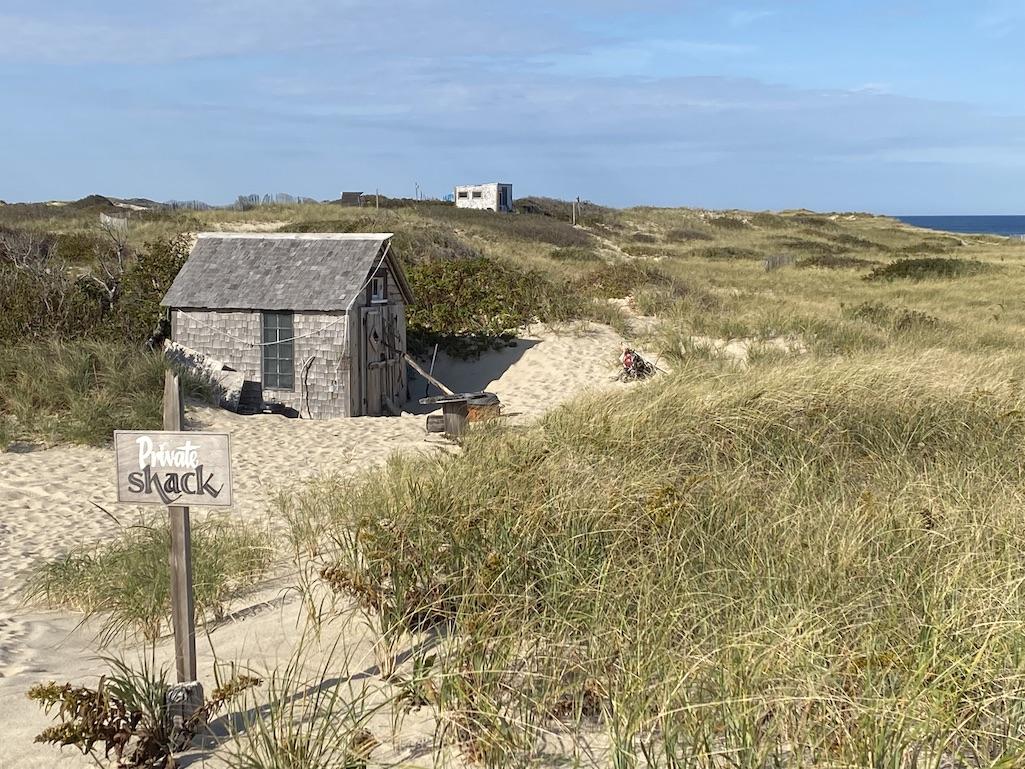
Your chance is now to lease a dune shack at Cape Cod National Seashore for a decade/NPS file
Your opportunity to call a historic home within Cape Cod National Seashore your own for a decade is coming up, but it requires you to embrace a humble lifestyle.
From now until 5 p.m. EST on July 3 you can make a bid to lease one of eight historic properties within the national seashore. The eight historic dune shacks, located within the Peaked Hill Bars National Register of Historic District in Provincetown and Truro, are offered under a lease term of 10 years.
The opportunity to submit a proposal to lease any of these eight properties is competitive and is open to all interested persons and businesses. Information on the properties, leasing terms and conditions, and information on submitting proposals can be found here.
Appointment-only site tours will be held on June 15. To request an appointment for a site tour, or to ask questions about the leasing process or properties, please email e-mail us.
The dune shack properties will be leased “as-is with all faults.” The lessee is expected to occupy and maintain the dune shack as a traditional dune shack. The lessee will be responsible for the cost and implementation of all repairs, replacements needed to occupy the buildings including items such as roof replacement, carpentry repairs and addressing any/all fire and life safety code issues. The lessee will be required to perform routine maintenance.
The dune shacks are small, weathered, and often built on pilings to adjust for the ever-moving sand dunes surrounding these properties. The houses are remote, with no paved roads leading to them. Access is required by foot or by 4x4 vehicle along the park’s Oversand corridor. There are limited running water, plumbing, and electrical fixtures in most of the shacks.
Many of the shacks are remnants of the past, of poets and artists who sought the stark inspiration offered by isolating, windswept dunes on the outer beaches of Cape Cod. They are a well-weathered gray, some appear wobbly and are almost hidden by their embracing dunes, while others stand atop the hills of sand with sweeping views out into the Atlantic. The historic district dates to the early and mid-1900s, though the practice of living in the dunes dates to the late 1800s when similar shacks were built to house men (and sometimes their families) who toiled for the U.S. Life-Saving Service.
Lease proposals will be evaluated on overall merit. Evaluation criteria include compatibility of the proposed use of the property with respect to preservation, protection, and visitor enjoyment of Cape Cod National Seashore; the compatibility of the proposal with historic qualities of the property; the bidder’s financial capability of carrying out the terms of the lease; and the ability and commitment of the Offeror to conduct activities in the park area in an environmentally enhancing manner through, among other programs and actions, energy conservation, waste reduction, and recycling.
Federal regulation requires that the lessee pays, at minimum, fair market value rent, which has been determined through a local market analysis and is identified in the RFP for each property. Any repair or rehabilitation work must be done in accordance with the Secretary of the Interior’s Standards for Treatment of Historic Properties. Those standards can be found here.
The Dune Shacks of Peaked Hill Bars Historic District occupies approximately 1,960 acres within the national seashore outside of Provincetown and Truro.



Add comment